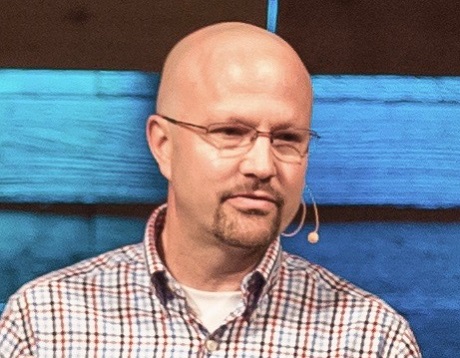- Calls to this hotline are currently being directed to Within Health, Fay or Eating Disorder Solutions
- Representatives are standing by 24/7 to help answer your questions
- All calls are confidential and HIPAA compliant
- There is no obligation or cost to call
- Eating Disorder Hope does not receive any commissions or fees dependent upon which provider you select
- Additional treatment providers are located on our directory or samhsa.gov
Benefits of Faith in Recovery from Disordered Eating (Christian Track)

Last summer, my family and I spent an evening jumping over obstacles, leaping across swinging logs and grasping for ropes at an adventure tower and ropes course in Franklin, Tenessee. Each level of the tower presenter greater challenges. Up to 45 feet above the ground, we tested our strength, concentration, and trust in the equipment as we laughed, gasped, and took risks together.
What allowed us to take these risks? What gave us the courage to do things we would never otherwise attempt? Simple – the safety ropes. At all times and throughout every element on the tower, we were locked into safety ropes that would catch us if we fell.
Without these safety ropes, we would have been taking much bigger risks than minor rope burn or a bruised ego. But with the safety lines in place, we were given enough security to try new things, challenge our fears, and step out of our comfort zone.
Recovery from eating issues is much like climbing on an adventure tower—you will face obstacles, have to overcome fears, and take tremendous leaps of faith. Having an active and growing faith in eating disorder recovery can act as an anchor for you as you take these steps. Here are three ways that happens:
Faith in Eating Disorder Recovery
Body Image
Distorted and distressed body image is a crucial element for many in the development and maintenance of disordered eating. In part, this comes from cultural voices promoting the message that your body is only valuable if it meets a narrow definition of beauty.
On the other hand, Christianity teaches that our bodies are good, not because of how they look but because of who created them. As you work through the challenges of building a healthy body image and navigating cultural lies, having an anchor to a Biblical view of the body and faith in eating disorder recovery will keep you moving forward.
Personal Value
Am I loved? This question is central not only to eating disorder recovery but what it means to be human. Scripture and science agree; attachment and secure relationships are at the heart of good mental health.
We need to know we are loved, especially when facing fears, confronting self-hatred, and changing behaviors. For Christians, this security is found in the knowledge that the King of the Universe calls you “child.”
Surrender to a Higher Power
 So what if you are not a Christian? How do you take hold of something that can provide an anchor through the recovery process? Comedian turned recovery advocate Russell Brand struggled with this question in his recovery from several problems, including drugs, alcohol, and bulimia.
So what if you are not a Christian? How do you take hold of something that can provide an anchor through the recovery process? Comedian turned recovery advocate Russell Brand struggled with this question in his recovery from several problems, including drugs, alcohol, and bulimia.
When he encountered the third step of the Twelve Steps, “We made a decision to turn our will and our lives over to the care of God as we understood Him” he was more than skeptical. He has reconciled this hesitancy by coming to terms with the fact that he himself was NOT God and that his way of doing life was not working.
Critical to recovery is the willingness to admit that what you’ve been doing up until now has not worked. Brand encourages those in recovery to ask, “Can I now accept there is a power greater than me at work in this cosmos? I don’t have to ally with it yet, all I have to do is accept that my thoughts and I are not the apexes of human experience. Of course, I can, it’s obvious. In nature and in human affairs, It is obvious there are more powerful forces than me.” [1]
Climbing up to the next level of the adventure tower takes great courage, as does taking the next step in recovery. Anchor yourself to One who is greater than you, and you will experience greater freedom. Having faith in eating disorder recovery will only help in being successful.
REFERENCES
[1] Brand, R. (2018). Recovery: freedom from our addictions. New York, NY: Picador.About the Author:
 Travis Stewart, LPC has been mentoring others since 1992 and became a Licensed Professional Counselor in 2005. His counseling approach is relational and creative, helping people understand their story while also building hope for the future. Travis has experience with a wide variety of issues which might lead people to seek out professional counseling help.
Travis Stewart, LPC has been mentoring others since 1992 and became a Licensed Professional Counselor in 2005. His counseling approach is relational and creative, helping people understand their story while also building hope for the future. Travis has experience with a wide variety of issues which might lead people to seek out professional counseling help.
This includes a special interest in helping those with compulsive and addictive behaviors such as internet and screen addiction, eating disorders, anxiety, and perfectionism. Specifically, he has worked with eating disorders since 2003 and has learned from many of the field’s leading experts. He has worked with hundreds of individuals facing life-threatening eating disorders in all levels of treatment. His website is wtravisstewart.com
The opinions and views of our guest contributors are shared to provide a broad perspective on eating disorders. These are not necessarily the views of Eating Disorder Hope, but an effort to offer a discussion of various issues by different concerned individuals.
We at Eating Disorder Hope understand that eating disorders result from a combination of environmental and genetic factors. If you or a loved one are suffering from an eating disorder, please know that there is hope for you, and seek immediate professional help.
Published March 17, 2020, on EatingDisorderHope.com
Reviewed & Approved on March 17, 2020, by Jacquelyn Ekern MS, LPC

The EatingDisorderHope.com editorial team comprises experienced writers, editors, and medical reviewers specializing in eating disorders, treatment, and mental and behavioral health.

